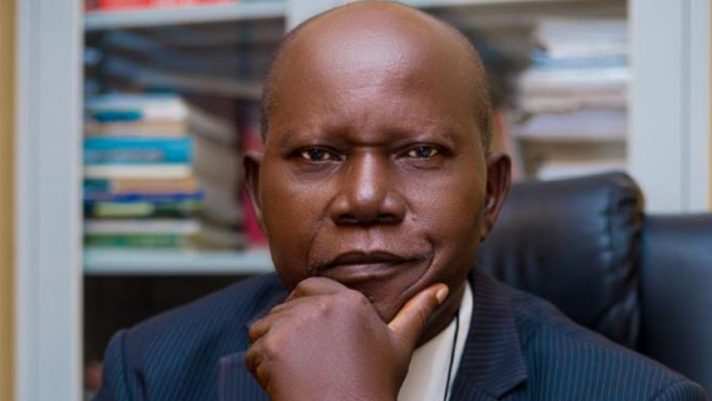By Benson Ngozi Iwuagwu
The processes identified with restorative justice – victim-offender mediation, conferencing, circles, will not necessarily produce restoration if they are not used according to the principles and values of restorative justice – Daniel W. Van Ness et.al
Restorative justice processes are managed by facilitators, who in effect, are the face of the integrity or otherwise of restorative processes, before the offender, victim and prosecutorial authorities and community.
Restorative values are emerging as a unifying concept that grounds theory and guides’ practice. Values are the foundation of restorative justice, the touchstone to which we return when in doubt about what to do or how to do it, the yardstick for assessing action. Ordinarily, values, inter alia, mean principles or standards of behaviour, one’s judgement of what is important in life.
In restorative justice, values can be divided into two; process value and individual value. Process value can be likened to the integrity of the process, while the individual value speaks to the integrity of the person, in this case the facilitator.
Who is a Facilitator? A facilitator, inter alia, is one who helps a person or organisation do something more easily or find the answer to a problem, by discussing things and suggesting ways of doing things. A facilitator is not just an umpire, he is the sanitary and security officer to ensure an atmosphere and environment for healthy, voluntary and safe conversations between and among those who have harmed others, those harmed and other interested persons. In a sense, he is the personification of the system, in this case, restorative justice and its processes.
Who is a Mediator? A mediator is a person who attempts to make people involved in a conflict come to an agreement; a go-between.Whether facilitator or mediator, there are acceptable codes or ways of doing things or carrying out responsibilities, which often might be ethical or unethical.
What is Ethics? Ethics have been defined as moral principles that control or influence a person’s behaviour. Ethics is the product of principles and values. Ethics is the how, while values reflect our beliefs or principles. In effect, therefore, we are looking at the beliefs that guide the manner in which we conduct restorative justice processes; cognisant of the definition of restorative justice as an inclusive, therapeutic and conversational approach of justice that aims to repair the harm caused by crime. The process is led by a facilitator, in such a way that promotes offender responsibility and reformation; victim healing and closure with communal restoration.
It also infers to a system of moral principles or rules of behaviour. In restorative justice, which is considered a response to the seeming violations of the basic tenets of justice – inclusion and participation, ethics is very crucial to what we do and how it promotes our relationship with others.
PRINCIPLES OF RESTORATIVE PROCESSES Restorative practices are underpinned by a set of values, these include: Empowerment, Honesty, Respect, Engagement, Voluntarism, Healing, Restoration, Personal Accountability, Inclusiveness, Collaboration, and Problem-solving. Primary aim of processes is to be the repair of harm caused by crime. Agreement about essential facts of the incident and an acceptance of some involvement by the person who caused the harm. Participation to be voluntary for all participants and based on informed choice. This also applies to what is included in any outcome agreement, and any consequence for non-participation/ compliance to be made clear.
RESTORATIVE VALUES Process Value There might not be a generally accepted definition of process values, but for a process to be restorative, certain characteristics have been commonly accepted. These include respect, inclusion, equality, self-determination, truth-telling, listening, humility, responsibility, safety and reintegration.
Essentially a restorative process must be egalitarian, inclusive, produce changes in behaviour and inspire confidence and participation. Individual Process
The facilitator mirrors the restorative values on a personal level of respect, honesty, truth-telling, fairness, patience and taking responsibility. The process design and facilitators example create an environment in which value – based behaviour by the participants can thrive. The facilitator is to avoid any approach or practice that is not compatible with providing the parties with an uninterrupted narrative, storytelling format. For instance, in victim-offender mediation a facilitator does not paraphrase, reframe or summarise for the parties as maybe obtainable in commercial or civil mediation.
In sum, restorative justice has come to, in large measure, remedy the notorious deficiencies of our extant criminal justice system that is technical, exclusivist, impersonal and most times immoral; not as a replacement but a complementary walk-along, possibly to advance the course of humane and inclusive justice, which is therapeutic and enduring.
The enduring quality of restorative justice is grounded in its values and ethical underpinnings, which connects more with human emotions of fairness, equity, equal access and participation, which paints an acceptable picture of justice. Without ethical considerations in both the design and practice of restorative justice, it cannot be restorative. When justice in the court of Chancery was characterised as varying according to the foot of the Chancellor, principles and rules of Equity came in attempted mitigation. It would seem correct to say that restorative justice is evolving as a complementary system of criminal adjudication to mitigate the pains of victims, hold offenders accountable in ways that promote rehabilitation and reintegration, while curtailing prison and court docket congestion with a check on recidivism.
The face and nature of justice should be even, consistent with facts and law, regardless of the facilitator, offender or victim, if not, you have inconsistencies, disenchantment and loss of confidence in the system. In an effort to ensure uniform dispensation of justice and minimal facilitators bias, standard operating protocols are in place and at the United Nations level, we have the Tokyo Rules, which among other things, provide legal safeguards in the use of restorative justice. • Benson Iwuagwu is the Executive Director of Prison Fellowship Nigeria (PFN)

